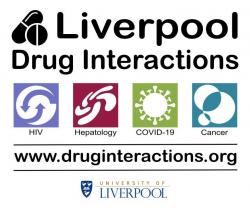The COVID-19 Clinical Forum for Pharmacists and Nurses was a series of 1,5 hours of webinars that aimed to provide tailor-made and evidence-based information on therapeutics, clinical management of COVID-19, long COVID, vaccines, testing, transmission, and epidemiology. In addition, participants were provided with the information to educate patients and deal with misinformation.
The pressure and the demands that the COVID-19 pandemic has had on health systems and staff have been unprecedented and unsustainable for many. This acted as a transformation catalyst for several healthcare professionals that were forced to redesign their clinical delivery methods. Among the healthcare workforce, nurses and pharmacists have had critical roles and responsibilities. Nurses are actively involved in patient care in hospitals, in the management of health resources, and in the evaluation and monitoring of COVID-19 in the community. Pharmacists have a key role in developing treatment guidelines, patient counseling, advising on potential drug-drug interactions, supply of essential medicines and protective equipment, as well as promoting health education, testing, and administering vaccines to patients. The exhaustion and burnout due to being on the frontline fight against COVID-19, coupled with the transformation of their roles, have been followed by an urgent need to keep nurses and pharmacists updated in providing high-quality care in this rapidly progressing field.
Up-to-date education on the clinical management of inpatients and outpatients, testing, transmission, prevention, epidemiology, as well as delivering reliable education to patients is of utmost importance for these professions. This need for reliable and evidence-based education is critical in these circumstances of intense, complex, and enduring change as throughout the COVID-19 pandemic. In this respect, virtual learning experiences have been an incredible tool that facilitated medical education during the last two years, paving the way for knowledge sharing and discussions among healthcare professionals worldwide. Through the use of virtual platforms, nurses and pharmacists can be supported and provided with the resources needed to deliver patient-and community-centered services and to promote affordable, high-quality COVID-19 care.

















